Twelve Years
 The Gesell Institute of Child Development has observed that children go through a repeating sequence of six different stages with predictable changes in mood and behaviour in each. Twelve Years includes just one such stage. The behaviour observed in these stages reflects the qualities associated in tradition with the planets—in the case of Twelve with Venus.
The Gesell Institute of Child Development has observed that children go through a repeating sequence of six different stages with predictable changes in mood and behaviour in each. Twelve Years includes just one such stage. The behaviour observed in these stages reflects the qualities associated in tradition with the planets—in the case of Twelve with Venus.
The developmental traits in these profiles represent only one aspect of children’s behaviour and may be masked, modified or intensified by other factors, both individual and environmental, such as temperament, gender related behaviours, high stress levels, over-stimulation, too much screen time or organic problems.
Note: If your child has turned this age but shows none of these behaviours, please read the previous age level, or just wait a few months, then read this again!
These profiles integrate the wonderful descriptions from the Gesell Institute of Child Development research and the ideas of Rudolf Steiner into my own research. Direct quotations from Gesell are in ‘single quote marks’ or indented.
View/download as pdf Twelve
Twelve
A stage with Venus qualities
Twelve brings a period of relative calm after Eleven, ‘as sunshine follows a storm’. It reflects a number of influences. Firstly they are now showing a new maturity in being able take hold of new skills and capacities. Secondly, it is remarkable just how closely Twelves reveal the qualities associated with Venus, with an emphasis on strong feeling, priority again for social relationships, an aesthetic sensibility, and even a discernible flirtatiousness. Thirdly, their fluctuating energy creates some challenges; they can sometimes appear rather phlegmatic and lethargic, but they are also strengthened by a new force of will and intentionality, with new interest in will-filled control of thinking, feelings and actions; they can be calm and feisty at different times.
Physical growth
The emphasis in physical growth at Twelve is consolidating in the limbs, lower abdomen and metabolic system and with this comes new interest in will-power. Growth spurts in the arms and legs can bring different rates of growth in the skeletal system from that in the muscular and nervous system, resulting (in some children) in pain and a lack of coordination (like Elevens, they may complain of pain in the feet—heels especially).
The hormonal changes associated with puberty are becoming more established. The onset of these can be affected by many factors including genes, race, obesity, home environment, stress, food, even climate, and of course, gender. Physically the developmental differences within and between the genders become even more marked at Twelve. While boys mature up to a year later than girls and show more definite changes at Thirteen, even at Twelve the testosterone levels can increase 800% over levels in toddlerhood. Some 50% of boys have levels of testosterone so high that some converts to oestrogen and breast swelling and tenderness may be experienced (quoted in Biddulph, ‘Raising Boys’ p 37). This can embarrass affected boys who need to be reassured that this swelling is not a problem and in fact may indicate that, later on, their rounded forms are more likely to transform into the ‘the incredible hulk’!
This is the year of most rapid growth for girls in adolescence, in both height and weight, with the average girl reaching 95% of her mature height. Breasts are filling out and many girls will have reached menarche by the end of this year.
Oddly, freckles increase again, as they did at Six, presenting us again with this phenomenon of increased melanin in the skin, associated with an enzyme containing copper (the Venus metal.)
The changes in the brain, especially the higher brain, continue, with new connections forming and being strengthened, the proportion of grey matter giving way to white, preparing the way for more mature abstract thinking and behaviour based on higher ethical principles in adolescence.
Health
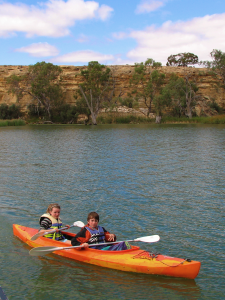 Twelves have big appetites and can be driven by hunger. Gesell research on Twelves’ health notes that, though excellent in some, it is not necessarily consistently good in all Twelves. While they tire less frequently than at Eleven, they can suffer from periods of extreme fatigue at which times they hate everything and everybody that demands anything of them! It is a wise parent who can acknowledge that this tiredness is not pure laziness and may have an organic cause. This is the time, Gesell suggests, ‘when the child would profit from a day off from school.’ At home it may help to provide opportunities to re-negotiate the completion of demanding tasks to a better time. Gesell suggests that their ‘casually, desultory relaxation, shapeless lounging, sprawling’ or just “lazing around” may be a self protective method of compensating for the excessive enthusiasm of Twelve. For their enthusiasm depends on the fund of energy available to heighten any like or dislike. (“I love tomato juice”. “It was excellent!”)
Twelves have big appetites and can be driven by hunger. Gesell research on Twelves’ health notes that, though excellent in some, it is not necessarily consistently good in all Twelves. While they tire less frequently than at Eleven, they can suffer from periods of extreme fatigue at which times they hate everything and everybody that demands anything of them! It is a wise parent who can acknowledge that this tiredness is not pure laziness and may have an organic cause. This is the time, Gesell suggests, ‘when the child would profit from a day off from school.’ At home it may help to provide opportunities to re-negotiate the completion of demanding tasks to a better time. Gesell suggests that their ‘casually, desultory relaxation, shapeless lounging, sprawling’ or just “lazing around” may be a self protective method of compensating for the excessive enthusiasm of Twelve. For their enthusiasm depends on the fund of energy available to heighten any like or dislike. (“I love tomato juice”. “It was excellent!”)
Will power
As their physical growth continues to have its emphasis in the limb and metabolic system, Twelves reflect positive new manifestations in the “will”. Gesell observes that they enjoy using their will power. They show a lot of interest in control over, and challenges to, their thinking capacity, their feelings and their competences. For they like to exercise their intelligence and they show enthusiasm and zeal as well as initiative, good will and self-control. They now like to keep their feelings under control, and consequently their emotional behaviour is steadier than at eleven; tears and violence are usually kept in check; they show pride in bearing pain, will accept discipline and seek self-discipline. They can atone for felt guilt. They can persevere on the tasks that need doing, but are not stubborn with regard to others, because they are, once again, generally more amenable.
Sense of self
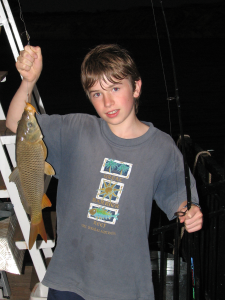 The sociable, good nature associated with Venus and Twelves can be clearly seen in the Gesell descriptions: ‘Twelves are nicely aware of their assets. They seem to be able to pick the very ones which best characterise their age—“being good natured,” “having a good disposition,” “being kind,” and “getting along with people.” Twelves are described as ‘tolerant, sympathetic, and friendly’. In the Gesell research interviews ‘Twelves enjoy the interview, like to talk, like the interplay with the interviewer.’ ‘They are comfortable and secure enough within themselves that they can allow other people to be less than perfect. Twelve will even allow mother to make a mistake or display a less-than-even temper’. Twelve ‘can merely step back, rather gently, view parents tolerantly and somewhat objectively.’ They also sometimes choose to be separate from them, preferring to be with their friends.
The sociable, good nature associated with Venus and Twelves can be clearly seen in the Gesell descriptions: ‘Twelves are nicely aware of their assets. They seem to be able to pick the very ones which best characterise their age—“being good natured,” “having a good disposition,” “being kind,” and “getting along with people.” Twelves are described as ‘tolerant, sympathetic, and friendly’. In the Gesell research interviews ‘Twelves enjoy the interview, like to talk, like the interplay with the interviewer.’ ‘They are comfortable and secure enough within themselves that they can allow other people to be less than perfect. Twelve will even allow mother to make a mistake or display a less-than-even temper’. Twelve ‘can merely step back, rather gently, view parents tolerantly and somewhat objectively.’ They also sometimes choose to be separate from them, preferring to be with their friends.
This is a great change from Elevens. Twelves are now less insistent and more reasonable and rely less on forthright challenges and pressures to realise their individuality. They have more objectivity, empathy, self-insight and less naive self-centredness. Their sense of humour and cheerful sociability makes them excellent conversational company. They also have a greater awareness of the total picture, and so are less naive in social relationships and have more tact. Twelves generally seem to want to avoid discord and disagreement and to keep things in balance. They are on the whole good-natured, pleasant, and willing to listen to reason but perhaps we should be grateful sometimes that they can also be ‘spunky and impatient’.
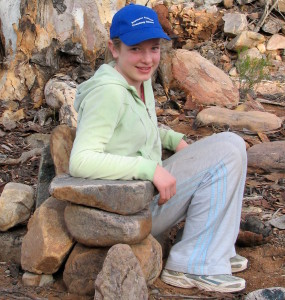 In terms of self-confidence, and their sense of self, Gesell says ‘Twelve is a pretty nice age to be.’ ‘Most have not yet begun those probing comparisons with others and downgrading of self which can for many make the next few years so uncomfortable.’ Yet Twelves do have their vulnerability. For, while they may be generous with their own expressions of appreciation and sympathy for others, their wish to be accepted by others and to avoid conflict with them may result in giving way to others too easily. For children who also have more a gentle temperament and strong feminine qualities as well, this tendency is compounded at this age. Once again, they may need to be reminded to be more independent of the expectations and pressures of others and strengthened in their individuality so they feel able to stand against the group, which has more influence in this year. This means adults need to respect and encourage the expression of this individuality too, though this may not be the easiest path for us. It means we have to listen more, allow more, accept more who they really are, not what we want them to be.
In terms of self-confidence, and their sense of self, Gesell says ‘Twelve is a pretty nice age to be.’ ‘Most have not yet begun those probing comparisons with others and downgrading of self which can for many make the next few years so uncomfortable.’ Yet Twelves do have their vulnerability. For, while they may be generous with their own expressions of appreciation and sympathy for others, their wish to be accepted by others and to avoid conflict with them may result in giving way to others too easily. For children who also have more a gentle temperament and strong feminine qualities as well, this tendency is compounded at this age. Once again, they may need to be reminded to be more independent of the expectations and pressures of others and strengthened in their individuality so they feel able to stand against the group, which has more influence in this year. This means adults need to respect and encourage the expression of this individuality too, though this may not be the easiest path for us. It means we have to listen more, allow more, accept more who they really are, not what we want them to be.
Strong Feelings and emotional development
Another strong Venus quality is that Twelves live strongly in their feelings and judge the world through these. They feel both sympathy and antipathy, love and hate, but also sometimes try to control the expression of these. Gesell characterises Twelve’s emotional reactions in the one word ‘enthusiasm’. ‘Much of the time boy or girl is bursting with energy. Boy just LOVES this or that; girl just HATES something else. There is little middle ground. In spite of the energy which most have at their command, there is less boiling over and exploding when angry… Many just “sit and seethe” or more likely make some verbal response.’ ‘When Twelve loves, he loves wholeheartedly. A more exuberant girl may sign her letters to her mother with “Love, Love, Love (multiplied by 10,000).” Twelves abounding enthusiasm may be equally expressed for pretzels, parents or religion. And hatred, alas, can be quite as strong. More often than not it is directed towards school…’ ‘Twelves extremes may be expressed in caution or daring, uproarious laughter or a complete absence of humour.’
There are gifts in being able to experience the world through strong feelings. It allows us to connect strongly with people and events. It makes us feel really alive and engaged, it spurs us into action and fosters a strong sense of things being right and good and worthwhile. When we have a negative response to something the gift is in being able to use the feeling response to gain useful information about the situation and work with this. In terms of protective behaviours, this is a useful skill indeed— to be able to sense immediately when a person or situation feels unsafe and act on this as helpful information. In some protective behaviours programmes such feelings of unsafeness have been described as “no” feelings and children have been encouraged to listen to these. Of course in sexual abuse, this is complex, because our physical bodily responses may be saying “yes” to erotic or sensual touch, while other feelings are saying “no”. But increasingly this is something our children have to learn about as they move more and more out into the world.
Another aspect of Twelves’ more intense feelings is evident in their sensitive reading of other people’s feelings and respect for these. Gesell observes: ‘Children of this age have their own feeling enough in hand to be more aware of other people’s feelings. They are often said to read mother’s emotions clearly. They watch her face to see how she feels. Twelve respects other people’s feelings and is cautious not to tread on any toes.’ This extra sensitivity makes them more aware of the way others treat them, and to other people’s disapproval, where a hardier age might not even notice, let alone be influenced by it. This makes Twelves more likely to capitulate to other people’s wishes.
 Twelves’ qualities of empathy, kindness, humaneness and compassion are also evident in a broader context. Gesell illustrates this too: ‘Twelve’s wishes are not only for the self, but for others wanting ‘to help the family or take them on a trip… Twelve not only desires peace in the world but would eradicate diseases, famine, and the threat of nuclear war’ (this was in the ‘70s; today it might also include concern about species loss and the effects of climate change). Twelves have something of a social conscience, caring about others. Gesell found that ‘a rather touching’ fifty five percent of girls, and sixty one percent of boys, believe that they themselves, when they are older, ‘might do something to improve social and political conditions.’
Twelves’ qualities of empathy, kindness, humaneness and compassion are also evident in a broader context. Gesell illustrates this too: ‘Twelve’s wishes are not only for the self, but for others wanting ‘to help the family or take them on a trip… Twelve not only desires peace in the world but would eradicate diseases, famine, and the threat of nuclear war’ (this was in the ‘70s; today it might also include concern about species loss and the effects of climate change). Twelves have something of a social conscience, caring about others. Gesell found that ‘a rather touching’ fifty five percent of girls, and sixty one percent of boys, believe that they themselves, when they are older, ‘might do something to improve social and political conditions.’
While Twelves do have their own struggles, like showing extremes of grown up helpfulness followed by childish lapses, they are in general in a positive time. It is significant that Gesell suggests that we, as adults, need to look at our part in the life of our twelve year old’s behaviour. Their potential for good can come to grief when stressed, in an unhappy home, in an inadequate school situation or frustrating neighbourhood. Twelves need ‘soul warmth’ on every level—emotional warmth, joy, art, beauty, nature, truthfulness. They need to avoid ‘soul coldness’ and indifference, under which they can shrink and become tense.
We need to be careful that adult expectations do not outstrip Twelves capacity to sustain their more mature behaviours through tiring, demanding times. Conflicts can arise out of too high expectations and lack of understanding. For those Twelves who feel badly misunderstood and feel that their needs (especially for new independence) have not been met at eleven and twelve, they can get ‘stuck’ in rebellion against adults and withdraw, sometimes for years, from sharing questions and confidences with these adults. If this has happened, it can be useful for parents to get professional help to break the cycle of withdrawal and resistance. It will only get harder as they get older. But if we meet their needs twelve can be a wonderful age, enjoyed by themselves and those around them.
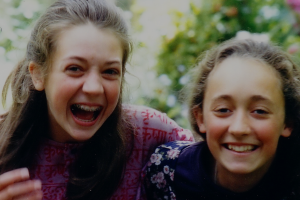
Relationships with peers
Twelves show many Venus qualities in relation to their friendships—love and harmony in all their manifestations— amicableness, sociability, cooperation, compromise, as well as cheerfulness, sympathy, kindness and compassion. Friends are important to them and, not surprisingly, their peer group plays a pervasive role in shaping Twelves’ attitudes and interests, especially at school; peers impose many pressures on Twelves.
Twelves are much more cooperative than competitive by nature – in keeping with their increasing empathy and sensitivity to others. This means they are more considerate, diplomatic and have much more awareness of and interest in how their age group thinks. They often look on problems of conduct from the stand-point of the group and this tests their capacity severely if they need to make an independent stand. They say “if you’re too good, kids don’t like you!” So they may yield to the pressure of the group to tease an inexperienced teacher or vulnerable child.
Parents and schools need to work with acknowledging the importance of peers, while at the same time emphasising the importance of independence, the value of the individual and doing what is right. The importance and power of the bystander in stopping bullying is a key concept to develop here. Equally it is important to work with children who feel victimised to help them see if there is something in their own behaviour, which makes them more vulnerable. They need to become aware of this and how they can change this, or at the very least avoid trouble. This is a good year to do this. It is part of preparing them for the future and teaching them how to keep themselves safe.
Parents are often concerned about their children at this age being taken too quickly by the peer pressure into the adult world- in dress, music, drugs, excursions into risky environments etc. Key questions to work with at this age might be: Does your child’s request/demand have an educational opportunity within it? Can you provide a taste of the experiences your child is demanding without putting them at risk? What safety issues are involved here? Can they safely experience something for a shorter time, in a supervised space, with back up support? What safety guidelines can you agree to which would make something more acceptable? You have a highly motivated child before you when your child really wants to do something. Can you use their request positively? Or is it something that is clearly just not appropriate and needs to be named as such.
You need to be able to do this yourself too. You need to be able to discriminate between differences in taste versus appropriateness and safety issues and choose wisely what is important. This can be a positive learning experience for you both. This is about leading your child into the world and teaching them about health, safety and more. It demonstrates to them that when you are responsible for someone, when you love them dearly, with their best interests at heart, you have to be strong in their defence. They want you to be a worthy guide in their lives, but they want you to be understanding too.
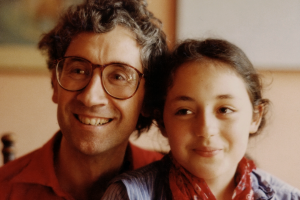
Thinking and school
In their intellectual development we also see greater maturity. They now have more interest in the past and the future and their own place in it. They are able to make more conceptual abstract definitions and understand the conceptual import of justice, law, loyalty and life. They are more literate, more articulate, and their argumentation is less contentious and more calm. They show a new reasonableness. Their ethical sense is more realistic than idealistic. They show tolerance, a sense of proportion and the potential for good.
At school, they now have the capacity for sustained, arduous, factual, learning and training for basic skills. Their spirited enthusiasm can rise to a boisterous pitch and they enjoy open outspoken discussions and debates. They love group work. It is not so surprising then that generally, Twelves like to be taught.
It is interesting that in this particular year of Twelve, children should also show the Venus need for beauty in all its manifestations: artistic, in nature, in sensual experiences, in the human and built environment. Gesell noted that in this year: ‘Both sexes are interested in art and painting.’ ‘Some try their hand at creative writing.’ ‘They are quick to see the beauty of nature walks, and this perception produces added happiness.’ Schools and parents can make sure there is support for this openness to all art activities and nature experiences. Note that the inclusion of artistic activities and the physical activity which often accompanies nature experiences in a school day also improve intellectual learning, including maths scores!
Twelves also show a new relationship with their teacher. They like to make an ally of a good teacher and adopt him/her as a special member of the group; this can enhance the status and influence of the teacher who can become a catalyser. They want a teacher who is firm, well informed and humorous. Even more than at eleven one can see in Twelves the developmental readiness for the democratising in appropriate areas of classroom life, with accompanying expectations of increased responsibility and trustworthiness. If this sharing of control, by giving Twelves a say in some things, does not take place in the classroom, rebellious behaviours can entrench themselves even in a class of Twelves.
Romantic interests & sex education
Twelve, like Six, also raises some issues around sexuality and erotic and sensual experiences, which could reflect Venus influences as well as increases in sex hormone levels, more in girls than boys, more in some than others. These drive more exploratory behaviours, such as the enjoyment of kissing as Gesell notes:
Most Twelves are not as demonstrative in their affections for parents as at eleven. They restrict expressions of physical affections mainly to kissing, and this they definitely enjoy. They kiss good-bye. They kiss goodnight. Twelves may talk about whether they are for kissing or against it. No twelve-year-old party can be guaranteed safe from some form of kissing game…Girls are sometimes flirtatious with their fathers and are often said to be able to handle father better than any other member of the family does.
The ‘romance’ of this age is also interesting, and consistent with a Venus influence. ‘While some may still be strongly ‘anti-boy’ or ‘anti-girl’, most express a definite friendliness and interest.’ ‘Some boys who were not interested in girls at eleven, and may not be again at thirteen, enjoy a short period of genuine interest at Twelve.’ This slackening off of interest at Thirteen in some boys would certainly suggest that it is not all coming from hormonal changes— but may be characteristic of this Venus influenced stage as well. So ‘dating and interest in dating increases, even significantly amongst the boys.’ This romantic interest of the boys may be there for a short or long time—“in and out,” ‘first giving a good bit of attention to girls, then not bothering about them and being too busy.’ ‘Both boys and girls show a lot of shifting interest from one friend to another. Boys may get a girl in order to keep up with the other boys, and they may give her up as quickly as they got her.’ At parties ‘of course there must be one game such as “hide-in-the- dark” which seems essential to Twelve’s craving for close, accidental, and exciting contact with the opposite sex.’
The difference in maturity levels between the girls and boys is more obvious: ‘Girls, on the whole are more interested in boys than vice versa. In fact the girls are often chasing the boys. They want to sit near them. The boys’ interest rises as the year progresses. They express their initial interest by poking. Soon they are snatching a girl’s wallet or pencil box and are off to hide it.’ ‘Most girls attend parties hoping that something romantic may happen’ while boys may go to ‘horse around.’
Thus Twelves are settling into a healthier acceptance of each other. In this year too, their curiosity about the act of sexual intercourse becomes healthier. Up to this age it was generally seen as something ‘dirty’ though they may nonetheless have showed a fascination for it. This is a good year for sex education, in particular information about how romantic love, and the erotic feelings it induces, leads people willingly into the sexual act (the ‘willingness’ formerly considered with disbelief by children).
Talks about relationships and sex are ideally given by parents because this is an ongoing process that needs to be updated appropriately as their young people mature; parents are the ones most likely to be aware of these times as they arise naturally in the child/young person’s experience. Pictures of love, respect, tenderness and the intimacy of a healthy sexual relationship are even more important to share in a world where pornography and distorted body images of people are there to quickly fill any gap left by adults who are close to the child but reluctant to talk about the intimacy and beauty possible in sex. Research shows that good sex education delays the start of sexual activity, rather than hastens it (a fear of some adults).
Sex education (about human activity) is often presented in schools earlier than this because there is a small proportion (5%- a US figure, 2005) of children who are already having sexual intercourse at Twelve. Experience would suggest that these more precocious children are, on the whole, often the same children who are interested in drugs, alcohol and unsupervised parties with older children, have older siblings or are exposed to an acceptance of sexual behaviours in young adolescents in the environment. Sadly this also includes those children who have been sexually abused; their use of sexual intercourse often manifests in unhealthy ways, for defiance, to satisfy unmet needs for touch or affection, or for self-empowerment. For more on assessing risks to children around early sexual intercourse, alcohol and other drugs the website section on Worries about sex, drugs and technology.
For most other Twelves this interest in the opposite sex is still a relatively innocent ‘romantic love’, maybe involving ‘sexual activity’ (kissing, holding hands, fondling) but not full ‘penetrative sex’. A recent Australian government study confirms that such initial, more innocent ‘sexual activity’ is perfectly normal and developmentally appropriate for Elevens and Twelves (Stathopolous 2012). The relative innocence of Twelves’ romantic activity is consistent with the idea that Twelves interest in sexual activity may have been influenced by the developmental stage rather than only a consequence of sexual maturation. This is all the more reason why adults should be extra careful to protect Twelves from older children or adults taking advantage of them sexually. Their amenability and their romantic interest in combination make them more vulnerable to abuse. See Freda Briggs’ books on teaching children how to keep safe for help on this.
Overall in Twelve, one can again find many of the qualities associated with Venus. It is an opportunity for the child to experience a time when love, relationships, care and cooperation can take priority. It is a time when feelings dominate, even in love and hate, in enthusiasm, happiness, in friendship, in creative work and in the beauty of nature. The next year, Thirteen, will offer something very different.
View/download as pdf Twelve
Further Reading for Twelve
Bates Ames, Louise, Ilg, Frances L., & Baker, Sidney M. Your Ten-to-Fourteen-Year Old (A Dell Trade Paperback New York 1988) A Gesell Institute of Child Development book
Payne, Kim John, with Lisa M. Ross Simplicity Parenting Using the Extraordinary Power of Less to Raise Calmer, Happier and More Secure kids (Ballantine Books Trade Paperbacks, New York, 2009) Or view their website www.simplicityparenting.com
Weschler, Toni Cycle Savvy: The Smart Teen’s Guide to the Mysteries of Her Body (HarperCollins, New York, 2006)
See also
Avoiding trouble with elevens, twelves and teens
Technology and your teenager
Sex and your teenager
Drugs and your teenager
Thirteen year old profile
Eleven year old profile
Brief descriptions of planetary qualities
Building self esteem and resilience